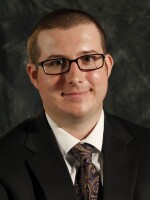TALLAHASSEE (The News Service of Florida) — Senate President Don Gaetz and an aide involved in the Senate's push for a larger number of African-American voters in U.S. Rep. Corrine Brown's sprawling district explained their logic Wednesday as testimony continued in a lawsuit challenging the state's political map.Gaetz, a Niceville Republican who chaired the Senate's mapmaking committee during the once-a-decade redistricting session in 2012, and John Guthrie, who led the committee's staff, were the first people involved in the Senate's process to speak during the trial.
Leon County Circuit Judge Terry Lewis is considering a challenge by voting-rights groups, who argue that the congressional districts approved in 2012 violate the state's anti-gerrymandering Fair District amendments, approved by voters two years earlier.
House Speaker Will Weatherford, R-Wesley Chapel, testified Tuesday the Senate convinced the House to adopt a plan that boosted above 50 percent the African-American share of the vote in the district of Brown, a Jacksonville Democrat. Weatherford chaired the House Redistricting Committee in 2012.
Weatherford said Tuesday that the Senate made "a very compelling argument" for the move, though he also said he had trouble remembering it. But under questioning from George Meros, a lawyer for the Legislature, he said that one reason lawmakers increased the black voting-age population in Brown's district was to prevent having the map thrown out under the federal Voting Rights Act.
But Gaetz also said the plan evolved "serendipitously" as the Senate pressed the House to continue to include Sanford in Brown's Congressional District 5, which winds through eight counties from Duval to Orange, wrapping in enclaves of black voters to create a district likely to elect a candidate favored by African-Americans.
The original Senate proposal included Sanford in the district, in keeping with what Gaetz said lawmakers had heard during public hearings ahead of the reapportionment process. The House did not.
"And so consequently, part of what I attempted to explain to Chairman Weatherford was that we thought that there was an advantage in not pulling Sanford, which had historically been part of the district, out of the district in a manner that would be entirely inconsistent with the testimony that we had received," Gaetz said Wednesday.
Increasing the district's population above 50 percent strengthens the protections extended under the Voting Rights Act. But opponents argue that it also makes surrounding districts friendlier to Republicans by putting Democratic-leaning voters on Brown's turf — potentially breaking the Fair District amendments' ban on drawing lines to favor political parties or candidates.
At the same time, Guthrie said he didn't consider boosting the African-American share of Brown's district above 50 percent to be "necessary" when Weatherford, Gaetz and staff members met to hammer out an agreement on the congressional districts.
"In the context of attending that meeting, I was of a mind that whatever it was that the Senate and the House, or Senate and House members decided that they wanted to do with Congressional District 5 — whether it was more like the House approach or more like the Senate approach — I thought that it would be possible to put up a defense of that district," said Guthrie, who stressed that he isn't an attorney. "Legal necessity is really for the courts to determine, not for a non-lawyer staff director."
Brown's district has emerged as one of the central focuses of the trial, the first under the constitutional standards for redistricting that passed in 2010.
Gaetz also discussed why the public wasn't notified about the meeting where he and Weatherford came to an agreement about the contours of the final congressional map. He said that while "the door was open," there was no need for the two to alert the public. Except for the budget, which is hammered out in "conference committees," lawmakers generally strike deals on legislation outside of the public eye.
"That happens all the time." Gaetz said. "It's the standard method of reconciling differences in substantive bills."






